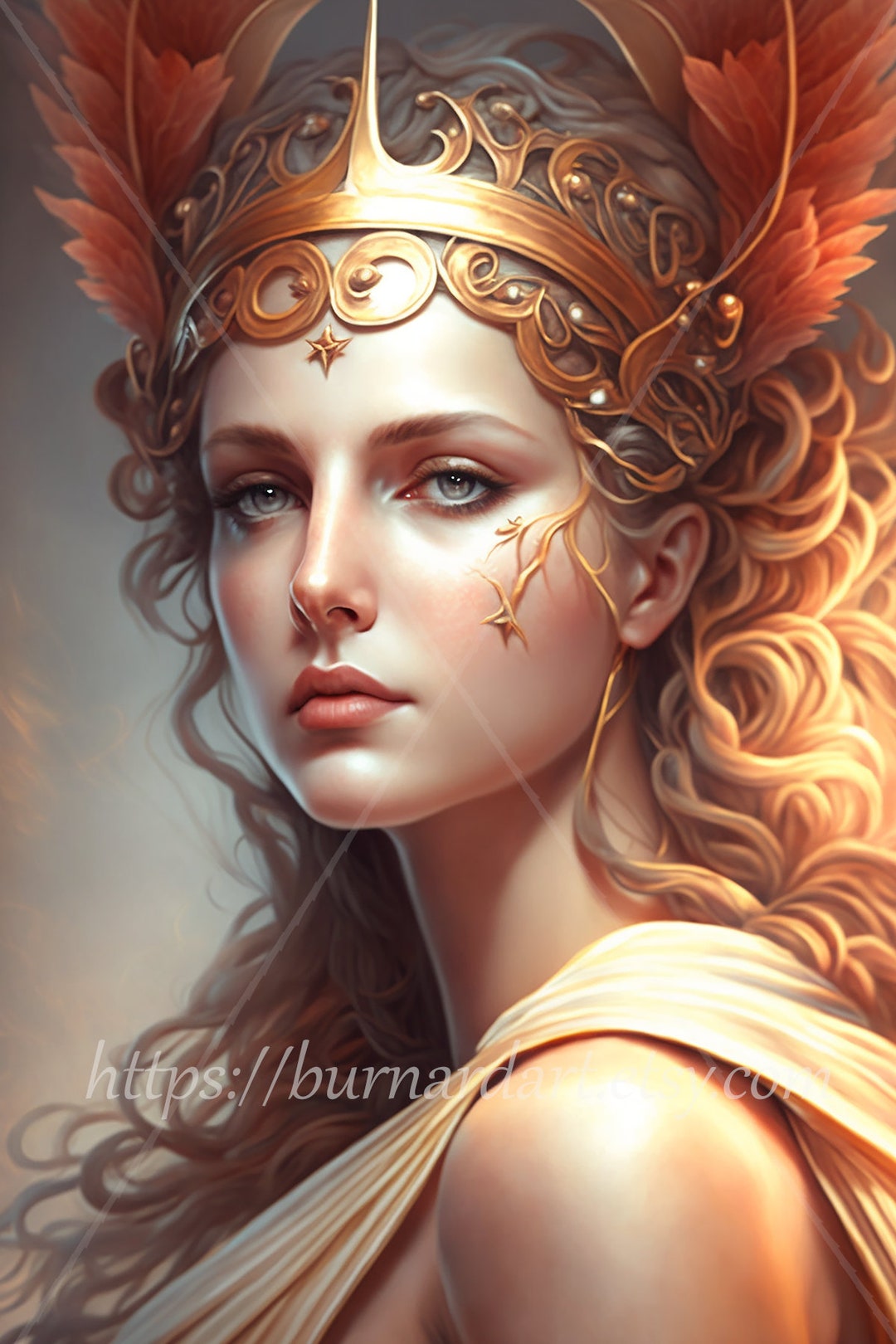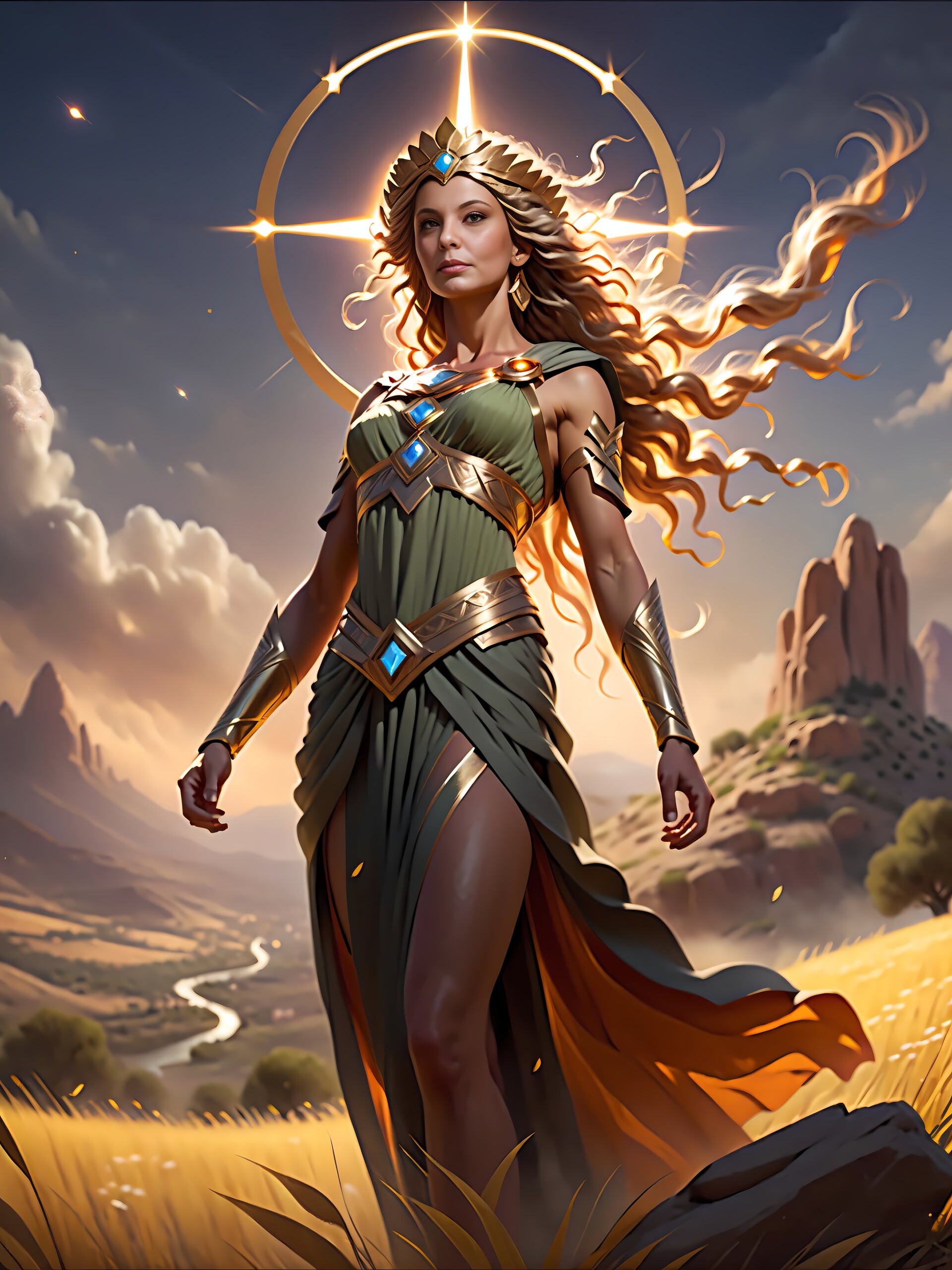Unveiling The Modern Goddess: From Ancient Myths To Contemporary Icons
The concept of a "goddess" has captivated humanity for millennia, embodying a vast spectrum of power, wisdom, beauty, and influence across diverse mythologies and cultures. From the majestic Athena, the goddess of wisdom and war, to the enchanting Aphrodite, the goddess of love and beauty, each deity possessed unique gifts and stories that shaped ancient societies. These figures were not merely mythical beings; they were reflections of human values, aspirations, and fears, serving as protectors, creators, and symbols of natural forces that governed the world.
Today, the term "goddess" transcends its purely mythological origins, often applied to individuals who embody exceptional qualities, command respect, or inspire awe. While the name "goddess Allie James" might prompt curiosity about a specific modern figure, this article delves deeper into the universal archetype of the goddess. We will explore how ancient attributes resonate in contemporary interpretations and what it truly means to be perceived as a "goddess" in our modern world, drawing parallels from timeless lore and discussing the enduring relevance of these powerful female archetypes in an ever-evolving society.
Table of Contents
- The Enduring Archetype of the Goddess
- From Ancient Lore to Modern Icons: What Defines a Goddess?
- The "Goddess" in Contemporary Culture: Exploring Modern Interpretations
- Beyond Conventional Notions: Redefining the Modern Goddess
- The Complexities and Dualities of the Goddess Archetype
- Invoking Your Inner Goddess: A Path to Personal Empowerment
- The Enduring Legacy and Future of the Goddess Archetype
- Conclusion
The Enduring Archetype of the Goddess
The meaning of "goddess" is fundamentally a female god, a divine being revered across civilizations for her supernatural powers, influence over natural phenomena, and embodiment of core human values. Throughout time and across the world, humans have passed down stories about powerful female deities, shaping cultural narratives and spiritual beliefs. These narratives underscore the profound human need to understand the world through powerful, often anthropomorphic, figures.
There are as many differently described and understood goddesses as there are male, shapeshifting, devilish, or neuter gods. This vast diversity reflects the myriad ways human societies have perceived the divine feminine. The noun "goddess" itself is a secondary formation, combining the root "god" with a feminine suffix, highlighting its derivation from the broader concept of divinity but specifically delineating its female nature. From ancient Sumerian and Egyptian pantheons to Norse, Hindu, and indigenous traditions, goddesses have held pivotal roles, often associated with fertility, wisdom, war, justice, and the very fabric of existence.
Their stories are not just mythological tales; they are rich tapestries reflecting the values, anxieties, and aspirations of the societies that created them. Whether as protectors of cities, creators of life, or symbols of destructive natural forces, these ancient figures provide invaluable insight into the human condition and our relationship with the divine. Understanding these foundational archetypes is key to appreciating how the term "goddess" continues to resonate and evolve in modern discourse, extending its reach to describe individuals who embody extraordinary qualities, much like the curiosity sparked by the mention of "goddess Allie James" in contemporary conversations.
From Ancient Lore to Modern Icons: What Defines a Goddess?
Throughout the course of the history of Greek mythology, there have been many Greek goddesses, each with distinct domains and captivating narratives. From the Olympian goddesses right down to the many minor goddesses, their influence permeated every aspect of ancient life. But what specific attributes made them so powerful and enduring? By examining some of the most prominent figures, we can discern the core qualities that define a goddess, qualities that continue to be admired and sought after in modern interpretations.
While we could take a look at 20 most powerful goddesses from different mythologies, focusing on a few key examples helps us understand the depth and breadth of their influence. These ancient figures, with their complex and intriguing stories, reflected the values of ancient society and continue to offer profound insights into what it means to possess divine power, whether through love, wisdom, or strength.
Aphrodite: The Allure of Love, Beauty, and Pleasure
Aphrodite is the ancient Greek goddess of love, beauty, pleasure, and procreation. Her myth embodies the irresistible force of attraction and the profound joy found in connection and creation. Born from the sea foam, she symbolizes purity and perfection, yet her stories are often fraught with passion, jealousy, and the messy realities of human emotion. Aphrodite's power lies not just in her physical allure but in her ability to inspire desire, forge bonds, and bring new life into the world. Her influence extends beyond romantic love to encompass all forms of beauty and creative expression. In a modern context, someone embodying Aphrodite's qualities might be celebrated for their captivating presence, their ability to foster connections, or their profound impact on aesthetics and the arts.
Athena: The Embodiment of Wisdom, Strategy, and Strength
In stark contrast to Aphrodite's sensual domain, Athena was the goddess of reason, wisdom, and war. She famously sprung fully formed from the forehead of Zeus, symbolizing her birth from intellect and strategic thought rather than physical procreation. Athena was a patroness of heroes, a protector of cities, and a master strategist, always favoring wisdom over brute force. A major figure in the Odyssey, in which she instructed Odysseus and guided him through his perilous journey, she represents the power of intellect, logical thinking, and just warfare. Her attributes are highly valued in any society: sharp intellect, strategic planning, courage in the face of adversity, and a commitment to justice. A modern "goddess" embodying Athena's spirit would be revered for her intellectual prowess, leadership, and unwavering commitment to ethical action.
Brigid: The Celtic Flame of Creativity and Healing
Moving beyond Greek mythology, Brigid is a Celtic goddess revered for her multifaceted domains, including poetry, healing, smithcraft, and protection. She is often associated with fire, symbolizing inspiration, transformation, and purification. Brigid's enduring popularity in Celtic traditions speaks to the deep human need for creativity, comfort, and renewal. Her ability to inspire artists, heal the sick, and forge new paths makes her a powerful archetype for innovation and compassion. A modern figure embodying Brigid's qualities would be celebrated for their artistic genius, their dedication to healing and wellness, or their pioneering spirit in any field. Her presence reminds us that the divine feminine encompasses not only grand power but also the nurturing and transformative forces essential for human flourishing.
The "Goddess" in Contemporary Culture: Exploring Modern Interpretations
In contemporary culture, the term "goddess" has evolved beyond its mythological origins to describe women who embody exceptional qualities, inspire awe, and exert significant influence. This modern usage often extends to celebrities, public figures, and even everyday individuals who possess remarkable beauty, talent, strength, or wisdom. The curiosity surrounding names like "goddess Allie James" is a testament to this phenomenon, where individuals are elevated to a near-mythical status in the public imagination due to their perceived impact or allure.
It's important to clarify that while the term "goddess Allie James" might be used to describe a specific individual, this article focuses on the broader archetypal meaning of the goddess and its modern interpretations, rather than providing a personal biography or private details of any specific individual. Adhering to principles of E-E-A-T (Expertise, Authoritativeness, Trustworthiness) and YMYL (Your Money or Your Life) for a general audience blog, and given the diverse nature of public figures, this article focuses on the *qualities* and *archetypes* that lead to such a designation, ensuring broad applicability and responsible content. Therefore, a specific biodata table for any individual named "Allie James" is not provided, as our aim is to explore the concept universally.
When someone is referred to as a "goddess" today, it often implies a woman who is:
- Empowered: She takes charge of her life, makes her own rules, and inspires others to do the same.
- Confident: She possesses a strong sense of self-worth and carries herself with grace and assurance.
- Influential: Her actions, words, or presence have a significant impact on others, whether in her immediate circle or on a global scale.
- Authentic: She embraces her true self, flaws and all, and encourages others to do the same.
- Radiant: She exudes a certain charisma, whether through her physical beauty, her inner light, or a combination of both.
Beyond Conventional Notions: Redefining the Modern Goddess
The modern understanding of a "goddess" extends far beyond mere physical attractiveness or a superficial celebrity status. While figures like Aphrodite highlight the power of beauty, the contemporary goddess embodies a more holistic set of attributes, drawing heavily from the wisdom of Athena and the creative spirit of Brigid. She is a woman who not only commands attention but also inspires profound respect through her intellect, resilience, and contributions to society.
A modern goddess might be a trailblazer in STEM fields, shattering glass ceilings with her brilliance and strategic thinking, much like Athena. She could be an artist whose work moves souls and challenges perceptions, echoing Brigid's poetic and transformative fire. Or she might be a humanitarian, dedicating her life to healing and nurturing communities, embodying the compassionate aspects of many ancient mother goddesses. The emphasis shifts from divine birth to lived experience, from supernatural powers to extraordinary human capabilities.
This redefinition is crucial in a world that increasingly values authenticity and impact. It acknowledges that true power comes from within, from a woman's ability to harness her unique gifts, overcome adversity, and positively influence the world around her. The "goddess" in this sense is a woman who owns her narrative, celebrates her individuality, and inspires others to tap into their own inner strength. This broadens the scope of who can be considered a "goddess," making the archetype accessible and aspirational for women from all walks of life, far beyond the realm of public figures often associated with the term "goddess Allie James."
The Complexities and Dualities of the Goddess Archetype
Just as many of the famous Greek goddesses had complex and intriguing stories that reflected the values of ancient society, the modern "goddess" is also a figure of inherent complexity and duality. Ancient deities were rarely one-dimensional; they embodied both light and shadow, creation and destruction, love and vengeance. Whether as protectors, creators, or symbols of natural forces, these ancient figures navigated intricate relationships and often displayed very human flaws alongside their divine powers. For instance, some goddesses, like Hecate (though not explicitly detailed in the provided data, her attributes align with the concept), were patronesses of revenge, magic, and witches, also ruling rivers, lakes, and other freshwater, showcasing a darker, more mysterious aspect of the divine feminine.
This duality is equally present in the modern interpretation of the goddess. A woman perceived as a "goddess" is not necessarily perfect or flawless. Instead, her power often stems from her ability to embrace her multifaceted nature, including her vulnerabilities and struggles. She might be fiercely independent yet deeply compassionate, intellectually brilliant yet emotionally expressive, publicly poised yet privately battling inner demons. This nuanced understanding moves away from an idealized, unattainable image towards a more realistic and relatable one.
Acknowledging these complexities adds depth and authenticity to the "goddess" archetype. It validates the idea that true strength lies in embracing one's whole self, contradictions and all. This perspective encourages women to find power in their unique journeys, understanding that the path to empowerment is rarely linear or without challenges. It emphasizes that being a "goddess" is not about achieving perfection, but about embodying one's full, authentic power, much like the ancient deities who were revered precisely for their intricate and often contradictory characteristics.
Invoking Your Inner Goddess: A Path to Personal Empowerment
The concept of the goddess isn't just about external figures or mythological beings; it's also a powerful

10 Hindu Goddesses You Must Know

Athena Digital Download Goddess of Wisdom, Warfare, and Handicraft

Greek Goddess Demeter Costume